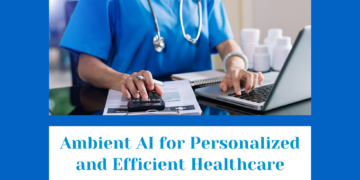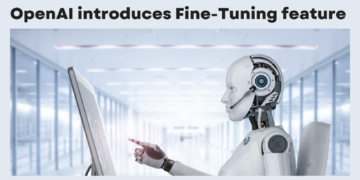Hitachi and Microsoft have announced a multi-billion-dollar, three-year strategic alliance to accelerate generative AI (GenAI) forward. Microsoft has been implementing new GenAI initiatives and driving research over the years. The company has also been facing a few controversies. But, if the partnership steers in the right direction, it has the potential to transform multiple industries. The collaboration also has the potential to address pressing social challenges.
Hitachi and Microsoft
The core objective of this partnership is to leverage the strengths of both companies to accelerate social innovation through GenAI. Hitachi, a conglomerate with a strong presence in sectors like energy and transportation, brings deep industry knowledge and a proven track record in developing Lumada, its IoT and AI platform. Microsoft, on the other hand, is a leader in cloud computing and AI development, offering advanced solutions like Azure OpenAI Service and productivity tools like Copilot. By combining these strengths, the partnership aims to:
- Enhance Hitachi’s Lumada Business: Hitachi’s Lumada solutions will be bolstered by Microsoft’s GenAI offerings, enabling the creation of more comprehensive and effective AI-powered solutions for customers in energy, mobility, and other sectors.
- Boost Operational Efficiency and Productivity: Hitachi plans to integrate Microsoft’s cloud and GenAI tools across its entire workforce of 270,000 employees. This is expected to automate tasks, improve forecasting, and optimize processes, leading to significant efficiency gains and enhanced productivity.
- Develop Innovative Digital Solutions: The partnership will foster the creation of next-generation digital solutions leveraging GenAI’s capabilities. Examples include predictive maintenance in Hitachi Rail, where AI proactively identifies potential equipment failures, minimizing downtime and improving service quality.
Bridging the Talent Gap
The agreement places a strong emphasis on developing a skilled workforce equipped to handle the complexities of GenAI. Hitachi has committed to training over 50,000 “GenAI Professionals.” This initiative will involve incorporating training on advanced software development skills using tools like GitHub Copilot and Azure OpenAI Service. By upskilling its workforce, Hitachi ensures it has the talent pool necessary to develop, implement, and manage GenAI solutions effectively.
Sustainability with Hitachi and Microsoft
The partnership acknowledges the environmental impact of AI, particularly the energy consumption associated with large-scale computing. Hitachi and Microsoft have pledged their commitment to sustainability by working towards zero-carbon data centers, starting with a pilot project in Europe. This focus ensures that advancements in AI are responsible, minimizing their environmental footprint.
Challenges and Considerations
While the potential benefits of this partnership are undeniable, there are challenges that need to be addressed. As with any powerful technology, ethical considerations regarding bias, transparency, and potential misuse of GenAI are crucial. Both companies must ensure responsible development and implementation of these tools. Increased automation through GenAI could lead to job displacement in certain sectors. It’s essential to have a plan for retraining and reskilling the workforce to adapt to this changing landscape. As more data is transferred to the cloud environment, data privacy and security become paramount. Robust cybersecurity measures need to be in place to safeguard sensitive information.



























